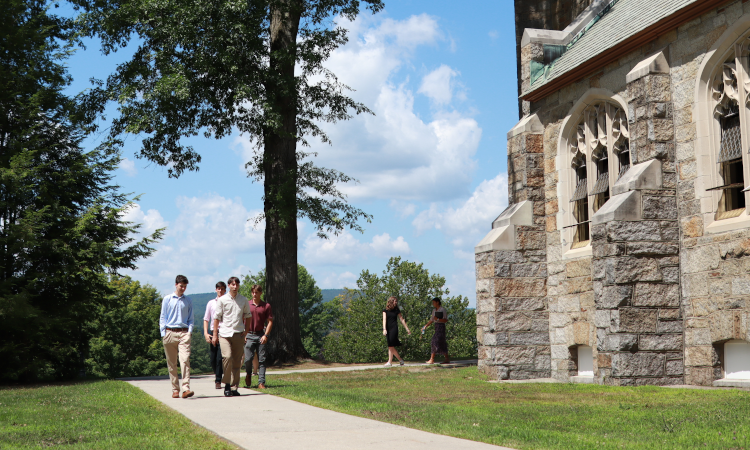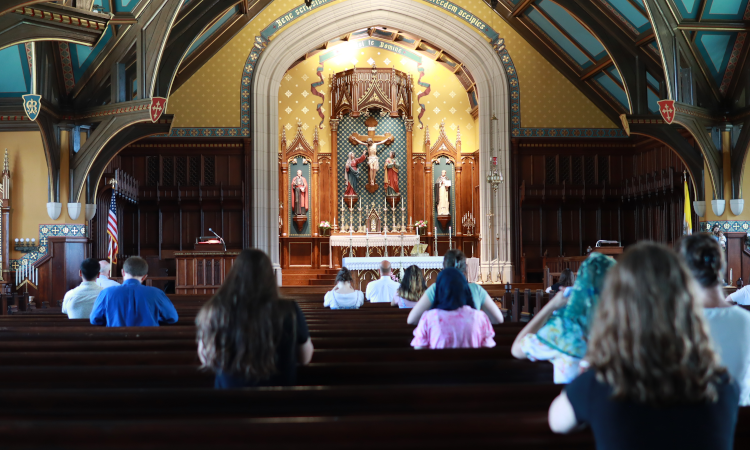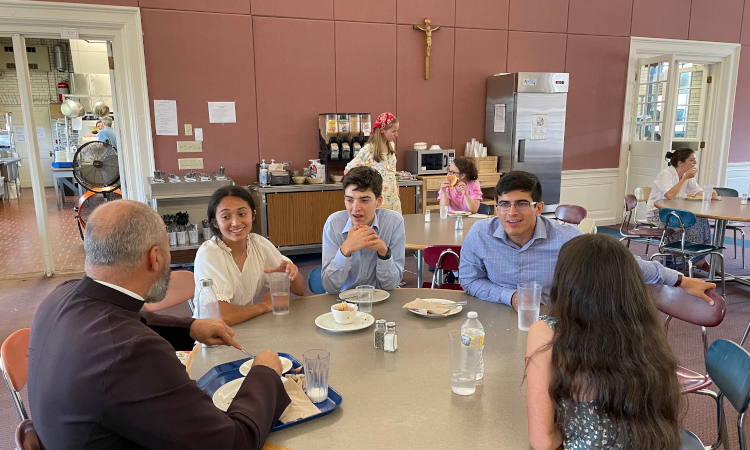- Home
-
About
 Fidelity & Excellence
Fidelity & ExcellenceThomas Aquinas College is unique among American colleges and universities, offering a faithfully Catholic education comprised entirely of the Great Books and classroom discussions.
-
A Liberating Education
 Truth Matters
Truth MattersTruth, and nothing less, sets men free; and because truth is both natural and supernatural, the College’s curriculum aims at both natural and divine wisdom.
-
A Catholic Life
 Under the Light of Faith
Under the Light of FaithThe intellectual tradition and moral teachings of the Catholic Church infuse the whole life of Thomas Aquinas College, illuminating the curriculum and the community alike.
-
Admission & Aid
 Is TAC Right for You?
Is TAC Right for You?Do you enjoy grappling with complex questions? Are you willing to engage in discussions about difficult concepts, with the truth as your ultimate goal?
-
Students & Parents
 Mind, Body & Spirit
Mind, Body & SpiritThere is always something to do at TAC — something worthwhile, something fulfilling, and something geared toward ever-greater spiritual and intellectual growth.
-
Alumni & Careers
 What Can You Do with a Liberal Education?
What Can You Do with a Liberal Education?Nothing speaks more to the versatility of the College’s academic program than the good that our alumni are doing throughout the Church and the world.
- Search
- Giving
Wagering on Design

Coming down from a night of Adoration and swing dancing, New England High School Summer Program students rose this morning to Mass in Our Mother of Perpetual Help Chapel and breakfast in the Gould Commons. Then it was back to St. Gianna Molla Hall for the discussions that are the lifeblood of the College’s program of Catholic liberal education. Students would spend the day wrestling with a question of the utmost importance: Can we know by reason that God exists?
The subject of the morning class was Blaise Pascal’s famous “wager” from the Pensées. Pascal argues that, absent definitive proof, man should operate under the assumption that God exists. He puts the matter in betting terms, explaining that, if there is no God, the believer’s belief will cost him very little, but if God does exist, then the believer’s faith will win him eternal life.
That may be so, but is there not a better case to be made for God than “play the odds”?
“I think it’s a good argument to get people to start thinking about the existence of God,” said programmer Natalie P. “I think there are definitely better arguments out there, though.”

After midday Mass and a lunch of tuna melts and potato chips, students were ready to consider some of those arguments in their afternoon class, where they examined two very different but complementary texts.

The first is Jean Henri Fabre’s detailed account of the workings of bees. Fabre is a master of showing the reader the beauty of nature, and in this passage he highlights the hexagonal shape of the cells in beeswax. The hexagon is the perfect shape for the structure, as compared to squares, circles, and other shapes, and all bees construct these cells naturally, in the same way every time. Fabre’s descriptions reflect brilliantly complex operations performed by hopelessly simple-minded creatures. The insects partake in a process far beyond their comprehension, yet essential to their existence, offering the hint of a design and, thus, a Designer.
St. Thomas Aquinas makes this argument explicitly in the students’ second reading, from the Summa Theologiae. In one of his “Five Proofs” for the existence of God, St. Thomas contends that “whatever lacks intelligence cannot move towards an end, unless it be directed by some being endowed with knowledge and intelligence … Therefore some intelligent being exists by whom all natural things are directed to their end; and this being we call God.”
Having examined these texts, students have now made a proper intellectual foray into two sorts of arguments for God’s existence: the probabilistic argument, followed by the reasoned argument (not that Pascal’s argument lacked reason). Drawing upon three of history’s greatest thinkers in a variety of disciplines, they have boldly broached the question of God’s existence in a philosophical manner with a firm foundation. Not bad for a day’s work!
Come back to the Summer Program Blog tomorrow morning to read about the tonight’s full schedule of activities, including a play, Stations of the Cross, and a campus-wide game of Clue!

